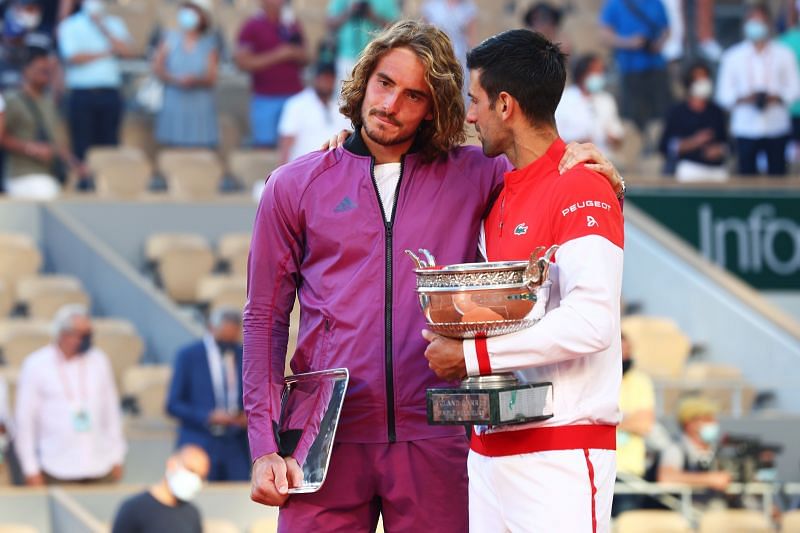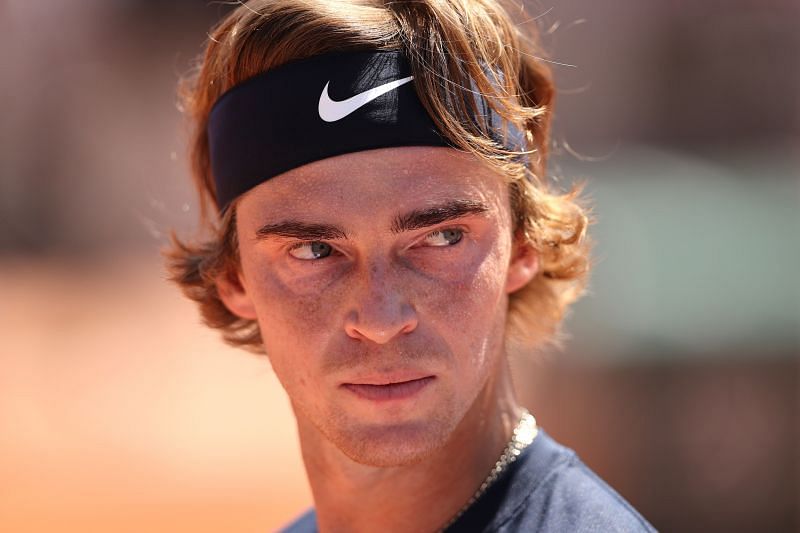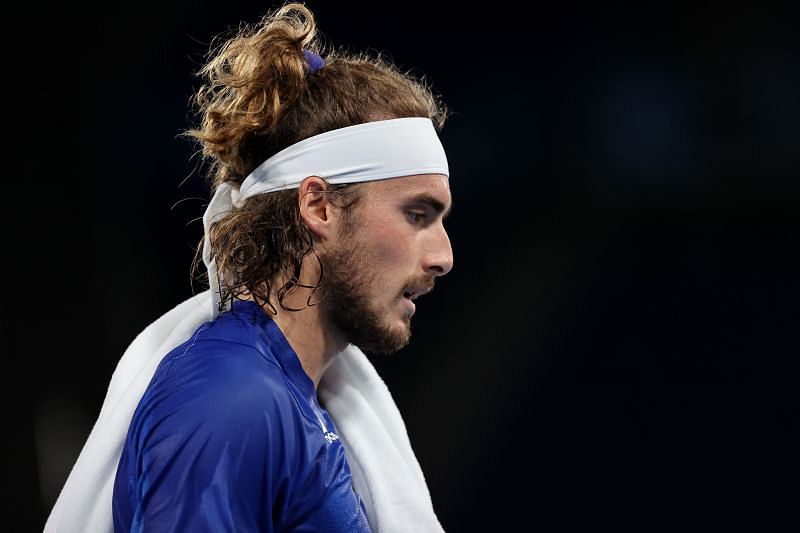
Vaccine hesitancy among the likes of Stefanos Tsitsipas, Novak Djokovic & Andrey Rublev is a problem that tennis cannot afford to have

World No. 3 Stefanos Tsitsipas recently caused controversy with his stance on COVID-19 vaccinations. The Greek stated that he wouldn't take the vaccine until it became "mandatory" for participation on the ATP tour.
Tsitsipas also said he saw no reason why young and healthy people needed to get the vaccine. According to the Greek, it's good for people in his age group to "pass the virus" and "build immunity" in that way.
Tsitsipas' comments did not come as a huge surprise. In fact, the Greek's views are shared by several top men's players. World No. 2 Daniil Medvedev admitted earlier this year that he wouldn't get vaccinated against COVID-19 "for medical reasons related to vaccines".

Andrey Rublev said he wouldn't take the vaccine if given a choice, while Olympic gold-medalist Alexander Zverev declared that he found the vaccine debate "too political" and that people should decide what was best for them.
Novak Djokovic, who won a record-equalling 20th Major at Wimbledon, said earlier this year that "freedom of choice" should prevail. The Serb added that he was opposed to compulsory vaccinations.
"“Freedom of choice is what I’m advocating for," Djokovic said.
"There has been a lot of confusion, I would say, as to whether there’s going to be a compulsory mandatory vaccination in order to take part in the ATP Tour," said the World No. 1. "I hope that it doesn’t become compulsory. I can say that clearly right now because I’m clearly against that.”
The ATP and WTA tours have not made vaccination mandatory as of yet, but they have encouraged players to receive the jab whenever possible.
The governing bodies even took the initiative to offer on-site vaccinations during several tournaments this year. The likes of World No.1 Ashleigh Barty, Jannik Sinner and Garbine Muguruza have taken advantage of these facilities to get inoculated.
Is "freedom of choice" a legitimate argument?
As stated above, a number of top players on the men's circuit have expressed concerns over COVID-19 vaccines. Some do not believe in the efficacy of the vaccine, while others feel they should be given the freedom to choose what they put into their bodies.
But is "freedom of choice" a relevant argument to avoid receiving the jab in the midst of a raging pandemic that has killed over four million people worldwide?

According to the World Health Organization, vaccines work by training and preparing the body’s natural defenses to recognize and fight off the viruses and bacteria they target. Therefore, it is important to get vaccinated as soon as possible, since approved vaccines provide a high degree of protection.
At a time when the world is dealing with its worst medical crisis in over a century, such apprehensions can prove immensely damaging - especially when you consider the huge fan-following of these players.
Tennis is one of the most popular sports around the globe. When some of the sport's biggest ambassadors make loose comments on sensitive subjects like vaccines, it can sway the minds of millions of uncertain fans.
WTA leading the way
Over the past year, several top female players have gotten themselves vaccinated against COVID-19. Victoria Azarenka even withdrew from a tournament in order to receive the vaccine on time, showing just how seriously she took the matter.
In a recent press-conference, two-time Major champion Simona Halep urged more people to get vaccinated so that restrictions like tournament bubbles could be relaxed. Former US Open winner Sloane Stephens, meanwhile, posted a video on social media, calling on her fans to get inoculated.
The variety of comments that have been made by some of the biggest names in the sport have facilitated conversations among fans. There has been talk about the top ATP players have shown a lack of social responsibility, and how the WTA stars have led by example.
It is time that the players on the ATP tour, especially those at the top of the pyramid, follow in the footsteps of their female counterparts and make more responsible public comments about vaccines. They need to show more faith in medical research and professionals who have worked tirelessly to steer us out of the ongoing pandemic.
Vaccine hesitancy is a problem that the sport of tennis - and the world at large - simply cannot afford to have.